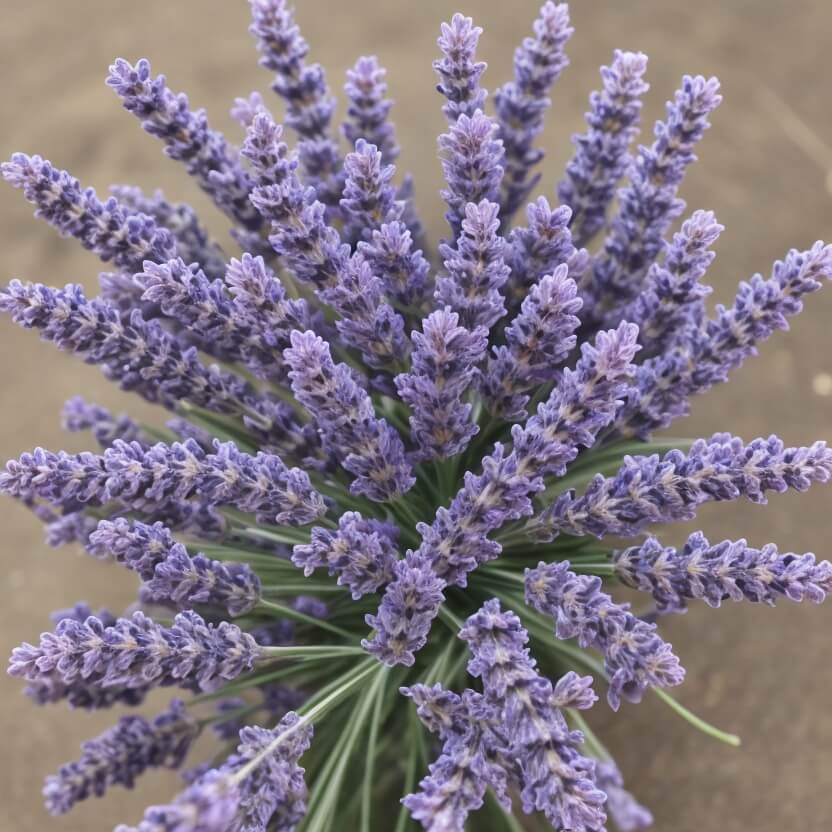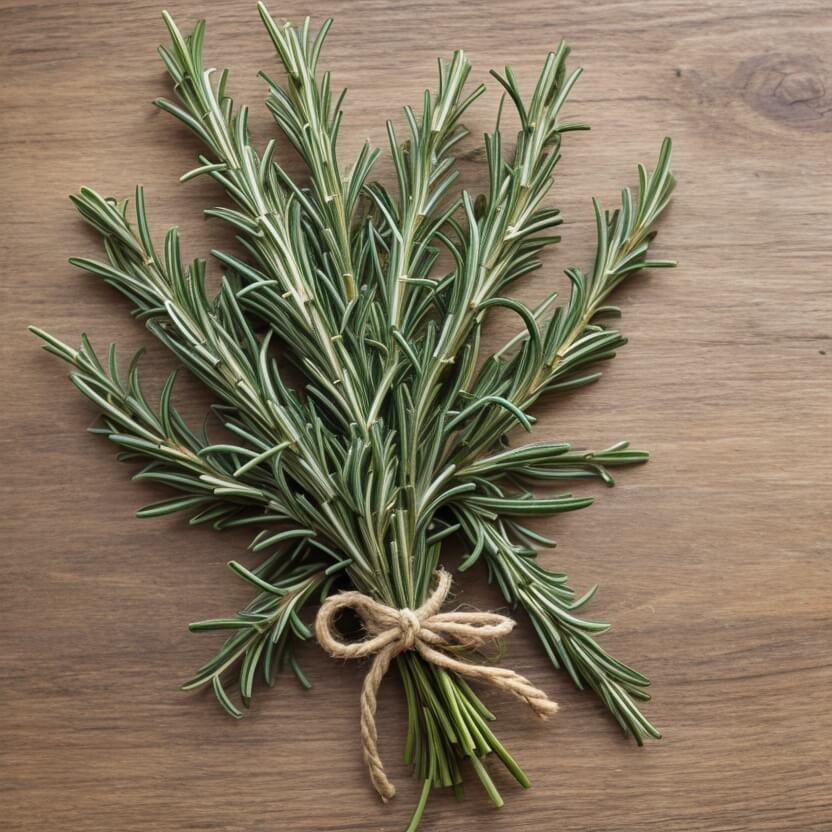In the universe of botanical spirituality, herbalism stands as a venerable practice, where the green tendrils of plants reach deep into the realms of magic and healing. This ancient tradition acknowledges the profound connection between humanity and the plant kingdom, a bond that has flourished through millennia, nurturing our bodies and our spirits too.
Every herb in your garden or wildcrafted from nature’s bounty carries its unique energy signature. These unassuming green allies are potent tools for protection, love, prosperity, and healing, among countless other intentions.
Lavender
 Lavender, renowned for its soothing fragrance, has long been cherished for its calming effects on the mind and spirit. Beyond its pleasant aroma, lavender possesses properties that can bring tranquility and peace to those who experience its scent.
Lavender, renowned for its soothing fragrance, has long been cherished for its calming effects on the mind and spirit. Beyond its pleasant aroma, lavender possesses properties that can bring tranquility and peace to those who experience its scent.
Traditionally, lavender has been used in various ways to promote a sense of calm and well-being. Many people use lavender essential oil in aromatherapy to alleviate anxiety, reduce stress, and enhance sleep quality. The gentle aroma of lavender can create a serene environment, making it a popular choice for sachets and potpourris that can be placed around the home to infuse rooms with a relaxing ambiance.
Lavender is often utilized in purification rituals to cleanse spaces of negative energy and promote a harmonious atmosphere. Its purifying properties have made it a staple in spiritual practices and ceremonies throughout history.
Rosemary

Rosemary, a resilient herb belonging to the mint family, is highly esteemed for its dual benefits of cleansing and clarity. Its aromatic leaves have been used for centuries in various cultures to purify spaces and dispel negative energies. When used in purification rituals, rosemary cleanses the environment and revitalizes the spirit, creating a renewed sense of balance and harmony.
Rosemary is also recognized for its ability to enhance mental clarity and focus. The invigorating scent of rosemary can stimulate the mind, making it a valuable ally for meditation practices, study sessions, and any activities that require concentration and mental acuity. Many people find that incorporating rosemary into their daily routines helps to clear the mind of distractions and promotes a sharper, more focused mindset.
Rosemary is a versatile herb that can be used in various forms, such as essential oils, dried leaves, or fresh sprigs. It can be burned as incense, added to bathwater, or infused in teas and tinctures to reap its cleansing and clarifying benefits.
Cultivating Your Magical Garden
Creating a magical garden is a deeply personal journey; it’s about forming a living, breathing sanctuary where every leaf and petal resonates with your spiritual intentions. While any garden can support your soul, designing one with the express purpose of enhancing your magical practices can be particularly fulfilling.
When selecting plants for your garden, it’s essential to consider both their practical and mystical attributes. Strive for a balanced mix of herbs that resonate with your spiritual aspirations. Whether you’re drawn to the protective properties of garlic, the love-enhancing qualities of roses, or the calming effects of lavender, allow your intuition to be your guide.
A well-rounded herb garden can serve multiple purposes, providing both medicinal and magical benefits. For instance, herbs like chamomile and peppermint are possess healing properties that can aid in digestion and relaxation. Similarly, herbs like sage and thyme are known for their purifying qualities and are often used in spiritual rituals to cleanse spaces and ward off negative energies.
Incorporating a variety of herbs in your garden can create a harmonious balance between the practical and the mystical, allowing you to cultivate a deeper connection with nature and the spiritual realm.
When planting your garden, each seed or seedling you sow offers an opportunity to infuse your space with intention and purpose. As you place each seed into the soil or gently transplant a seedling, hold your intention firmly in your mind and heart. Visualize the seed sprouting, taking root, and flourishing, all the while being imbued with your specific purpose and energy.
This intentional act of focusing your will and concentration transforms your garden from a simple plot of land into a powerful magical tool. The plants you cultivate become more than just decorative or culinary additions; they become living manifestations of your desires, aspirations, and spiritual goals.
Harnessing the Energy of Nature
The art of botanical spirituality goes beyond mere cultivation; it’s about forming a symbiotic relationship with the plant world. By spending time among your plants, observing their growth, and caring for them, you tap into a profound wellspring of energy.
Plants serve as potent allies in various rituals and spells, each contributing its unique energy to enhance your magical practices. Whether you’re drawing a bath infused with rose petals to attract love, burning sage to cleanse a space, or carrying a charm filled with protective herbs for personal safety, the possibilities for incorporating plant magic into your daily life are as limitless as nature itself.
The use of plants in rituals and spells is rooted in ancient traditions and has been practiced by cultures around the world for centuries. Each plant carries its own energetic signature and correspondences, making it a valuable tool for focusing and amplifying your intentions. For example, lavender is often used to promote peace and relaxation, while cinnamon may be employed to attract prosperity and abundance.
To harness the power of plant magic effectively, it’s important to approach each ritual or spell with respect, mindfulness, and clarity of intention. Take the time to research the properties and correspondences of the plants you wish to use, and consider how their energies align with your specific goals and desires.
Incorporating plant magic into your spiritual practices can deepen your connection to the natural world and enhance the effectiveness of your rituals and spells.
One meaningful way to strengthen your bond with the natural world is by crafting herbal offerings. These offerings can range from simple gestures to more intricate creations, serving as expressions of gratitude, reverence, and connection to the earth and its energies.
A simple herbal offering might involve leaving a portion of your garden’s harvest in a special garden nook as a token of appreciation to the earth for its abundance and support. This act acknowledges the cycle of giving and receiving that sustains all life and fosters a deeper sense of gratitude and respect for the natural world.
On the other hand, more elaborate offerings can involve crafting specialized herbal blends or arrangements to honor specific deities, spirits, or energies aligned with your spiritual path. For instance, you might create a blend of herbs known for their healing properties to honor a goddess of healing, or craft a sachet filled with protective herbs to offer to spirits that guard and guide you.
When creating herbal offerings, it’s essential to approach the process with mindfulness, intention, and sincerity. Consider the properties and energies of the herbs you choose, and how they align with the intentions and energies of the beings or forces you are honoring.
Magical Gardening

Magical gardening is the practice of growing and nurturing plants with the intention of incorporating their energy into your spiritual and magical work. It’s more than planting and harvesting; it’s about creating a space where the natural and supernatural realms intertwine, inviting a deeper connection with the earth.
Harnessing the energy of the moon phases in your gardening practices is a traditional and magical approach that can significantly enhance the growth and potency of your plants. The moon, with its cyclical phases, has long been revered for its influence on the earth’s natural rhythms and cycles. By aligning your planting and gardening activities with these lunar cycles, you can amplify the energy, vitality, and abundance of your garden.
The waxing moon phase, which is characterized by its increasing light and energy, is considered an optimal time for planting crops that are intended to grow above ground. This phase supports vigorous growth and can enhance the health, vitality, and yield of plants such as vegetables, fruits, and herbs. Planting during the waxing moon can help infuse your crops with strong, vibrant energy, aligning them with the upward and expansive energy of this lunar phase.
Conversely, the waning moon phase is associated with decreasing light and energy, making it an ideal time for activities that focus on root growth, pruning, and harvesting. Planting root vegetables, transplanting shrubs, or pruning plants during the waning moon can promote strong root development, enhance resilience, and improve the overall health and longevity of your plants.
Working with the moon phases in your gardening practices is a holistic approach that integrates the natural rhythms of the earth and sky, allowing you to cultivate a garden that is in harmony with the celestial forces and energies.